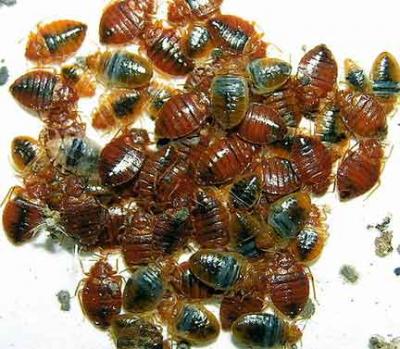Those of you who have been following my blog for some time will know I have a particular dislike for bed bugs. In March 2016, I wrote a long blog about how I’d noticed bed bugs has been taking over the news. To read that blog, click here.
Last month our PR consultant, Suzi Christie, sent me a link to a news story that detailed a new Californian law which aimed to stop the spread of bed bugs. Under the terms of the law, landlords must give tenants written information about these “blood-sucking, tenacious pests” and include details of how to report a suspected infestation. It also forbids landlords from showing or renting apartments with active infestations and protects tenants who report bed bug problems.
To quote Whitney Prout, a staff attorney with the California Apartment Association, bed bugs have a special law because, “they are a harder pest to treat [and] it requires early detection and integrated pest management between the landlord and tenant, because of how pervasively they can take over.”
The article also notes how some places go even further, citing San Francisco that has had its own bed bug ordinance since 2012. This gives prospective tenants the right to ask landlords about bed bugs, which must be answered in written form detailing the previous two years of activity.
This led to Suzi asking me about the legal position in the UK and I’m afraid the answer is rather less clear. If you have just moved in, then you can justifiably claim the bed bugs were there when you moved in and the landlord should take responsibility. If, however, the biting doesn’t start for a couple weeks, the landlord can claim that it was you that introduced the bed bugs. It might be possible to prove a previous infestation if there are clear visible signs but these could just as easily be the result of a new infestation. In my experience I’m not sure I’d like to stick my neck out, in a legal sense, and say definitively that an infestation was historic. I can imagine it would also be an expensive and slow process, which isn’t good when you’ve got bed bugs to deal with.
Talking to our Service and Technical Manager Chris Davis about this subject, we both agreed that in fact it was harder to deal with a light or early infestation of bed bugs and, talking to all our technicians, it was generally agreed that dealing with a heavy infestation was far easier. The problem with low-level infestations is that there can be reports of biting but it can be very hard to find evidence of actual bed bugs – at least, if you can see the bed bugs, you have something to focus on.
This brought us round to a discussion of ‘phantom biters’. All pest controllers get called to residences where a person is complaining of being bitten but, when the technician searches, there is no evidence of fleas or bed bugs. The landlord, renter and pest controller are then at an impasse. In the last century, we might have sent a technician to do a ‘placebo’ spray of the area, but these days we never use insecticides unless they are absolutely essential. It’s also noticeable that these ‘infestations’ can return within a short timeframe as the actual problem isn’t a pest problem but a problem with the tenant...again, hard to prove.
‘Phantom biters’ isn’t a problem that is restricted to the home and it is a problem we’ve often had to deal with in the workplace as well. This might make a good topic of a future blog as, in our experience, there isn’t one cause that can explain all biting cases.
In fact, bed bugs are a growing problem all over the developing world. The San Francisco Chronicle article states that the US was bed bug-free in the 1950s but the rise of international travel and increasing bed bug resistance to insecticides means they are now a problem everywhere.
Bed bugs are a problem that can’t realistically be dealt with by an amateur because they are very difficult. To quote Larry Kessler, principal health inspector with the San Francisco Department of Public Health, “it’s one of the few pests where we don’t want any kind of do-it-yourselfer dealing with it”.
We always advise prevention rather than cure. With bedbugs becoming resistant to insecticides, it is clear that preventative measures are the best way forward, especially when you return from a holiday. See here, or look at our special bed bug webpage.
Finally, if you have a bed bug problem, call in a professional pest control company. We now use a combination of approaches, including an environmentally friendly method, and this recipe is highly effective without using excessive amounts of harmful chemicals.
